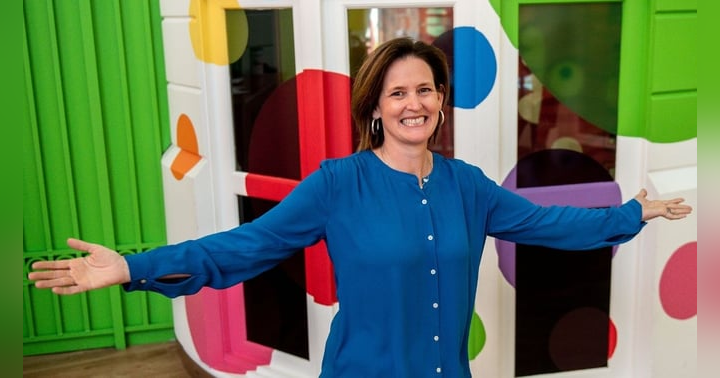
In today's fast-paced world, it's easy to fall into the trap of collecting business cards and adding connections on LinkedIn, believing that quantity equates to a strong network. But as Michael Morgan, author of "The Power of Networking," argues, true career success comes from cultivating real, meaningful relationships. This blog post delves deeper into Michael's philosophy, exploring the power of intentional networking, offering practical tips for building genuine connections, and emphasizing the importance of mentorship. This topic was recently discussed on the podcast in the episode Michael Morgan On Networking That Actually Changes Lives. Listen to the episode to hear Michael's inspiring stories and actionable strategies firsthand!
Beyond the Business Card
The concept of networking has evolved significantly. It's no longer about simply accumulating contacts but about fostering authentic relationships that can benefit all parties involved. A superficial network of hundreds or thousands of names might seem impressive, but without genuine connections, it's unlikely to yield significant results. This post emphasizes the shift from transactional networking to relational networking, focusing on building trust, offering value, and nurturing long-term partnerships.
Michael Morgan's Networking Philosophy
Michael Morgan's approach to networking is rooted in the belief that genuine relationships are the foundation of career success. His philosophy centers around intentionality, authenticity, and reciprocity. Michael doesn't see networking as a means to an end but as a continuous process of building connections based on shared values and mutual respect. He emphasizes the importance of giving back to your network, offering support, and seeking opportunities for collaboration. He talks about this a lot in the podcast episode Michael Morgan On Networking That Actually Changes Lives. Don't forget to check it out!
The Power of Intentional Networking: Michael's Journey
Michael's journey is a testament to the power of intentional networking. From his early days at Penn State, where fraternity life introduced him to the value of connection, to his executive roles at JP Morgan, Chevron, and Amazon, Michael has consistently leveraged his network to create opportunities for himself and others. He shares anecdotes of how networking led to hidden job opportunities, career advancements, and invaluable mentorships. He emphasizes that these opportunities weren't simply handed to him; they were the result of consistent effort, genuine engagement, and a willingness to invest in relationships.
Building a Network vs. Collecting Contacts
One of the key distinctions Michael makes is the difference between building a network and simply collecting contacts. Collecting contacts is a passive activity, involving accumulating names and email addresses without any real engagement. Building a network, on the other hand, is an active process that requires nurturing relationships over time. This involves regular communication, offering support, attending events, and seeking opportunities for collaboration. A strong network is built on trust, mutual respect, and a shared understanding of each other's goals and aspirations.
To illustrate this point, consider two scenarios: In the first scenario, you attend a networking event and collect dozens of business cards. You add these individuals to your LinkedIn network but never engage with them beyond the initial connection request. In the second scenario, you attend the same event and focus on building meaningful connections with a few individuals. You follow up with them after the event, offer your support, and stay in touch regularly. Over time, these relationships evolve into valuable partnerships that can lead to career opportunities and personal growth. The second scenario exemplifies the power of building a network rather than simply collecting contacts.
Actionable Networking Tips for Introverts
Networking can be particularly challenging for introverts, who may find it difficult to initiate conversations and navigate social situations. However, Michael emphasizes that introverts can be highly successful networkers by leveraging their strengths and adopting a strategic approach. Here are some actionable tips for introverts:
- Focus on Quality Over Quantity: Instead of trying to meet as many people as possible, focus on building deeper connections with a few individuals.
- Prepare Conversation Starters: Before attending an event, prepare a few conversation starters related to the event or the industry. This can help break the ice and make it easier to initiate conversations.
- Listen Actively: Introverts are often excellent listeners. Use this strength to your advantage by actively listening to others and asking thoughtful questions.
- Leverage Online Platforms: Online platforms like LinkedIn can be a great way for introverts to connect with others and build relationships from the comfort of their own homes.
- Offer Value: Focus on offering value to your network by sharing your expertise, providing support, and making introductions.
Remember, networking is not about being the loudest person in the room but about building genuine connections and offering value to others.
Expanding Your Network in New Cities
Moving to a new city can be both exciting and daunting, especially when it comes to building a professional network. Michael offers practical advice on how to expand your network in new environments. This includes:
- Attend Industry Events: Attend industry conferences, workshops, and networking events to meet professionals in your field.
- Join Professional Organizations: Join professional organizations related to your industry or interests. This can provide opportunities to connect with like-minded individuals and participate in networking activities.
- Volunteer: Volunteering is a great way to meet new people and give back to the community.
- Reach Out to Existing Contacts: Leverage your existing network by reaching out to contacts who may have connections in your new city.
- Utilize Online Platforms: Use online platforms like LinkedIn to connect with professionals in your new city and join relevant groups.
Building a network in a new city takes time and effort, but by being proactive and engaging with the local community, you can quickly establish valuable connections.
The Importance of Mentorship
Mentorship plays a crucial role in career development and personal growth. Michael emphasizes the importance of both seeking out mentors and becoming a mentor to others. Mentors provide guidance, support, and valuable insights based on their own experiences. They can help you navigate career challenges, develop new skills, and achieve your goals. Finding the right mentor involves identifying individuals who align with your values, have experience in your field, and are willing to invest in your growth.
Similarly, becoming a mentor can be incredibly rewarding. It allows you to share your knowledge and experience with others, help them achieve their goals, and build lasting relationships. Mentorship is a two-way street, benefiting both the mentor and the mentee.
Michael's Book: The Power of Networking
Michael Morgan's book, "The Power of Networking," is a practical guide to building meaningful connections for career success. The book provides actionable strategies, real-life examples, and inspiring stories that demonstrate the transformative power of networking. It covers a wide range of topics, including:
- Building a strong personal brand
- Identifying and connecting with key influencers
- Nurturing relationships over time
- Leveraging online platforms for networking
- Overcoming networking challenges
"The Power of Networking" is a valuable resource for anyone looking to enhance their networking skills and build a thriving professional network.
Work-Life Balance: Author, Speaker, and Cybersecurity Pro
Balancing a demanding career, writing a book, and engaging in public speaking requires careful planning and effective time management. Michael shares his strategies for achieving work-life balance, emphasizing the importance of setting priorities, delegating tasks, and making time for personal well-being. He highlights the need to establish boundaries between work and personal life, ensuring that you have time for family, friends, and hobbies. Work-life balance is not about dividing your time equally between work and personal life but about creating a sustainable lifestyle that allows you to thrive in all areas of your life. The podcast episode Michael Morgan On Networking That Actually Changes Lives covers how Michael balances his various obligations. Make sure to give it a listen!
Resources and Further Exploration
To further explore the topics discussed in this post, here are some valuable resources:
- Michael's Website: https://michaelvmorgan.com
- LinkedIn: Michael Morgan, PMP
- Instagram: @michael.v.morgan
- Book: The Power of Networking by Michael V. Morgan
These resources provide additional insights, tips, and strategies for building meaningful connections and achieving career success.
Cultivating Real Relationships for Career Success
In conclusion, building a strong professional network is not about collecting business cards or accumulating contacts but about cultivating real, meaningful relationships. By focusing on intentionality, authenticity, and reciprocity, you can create a network that supports your career goals and fosters personal growth. Remember to offer value to your network, seek out mentors, and embrace opportunities for collaboration. The strategies discussed in this blog post, inspired by Michael Morgan's philosophy and book "The Power of Networking," can help you transform your networking approach and unlock your full potential. Be sure to listen to our latest episode, Michael Morgan On Networking That Actually Changes Lives, for a deeper dive into these concepts and to hear Michael's personal insights and experiences!










